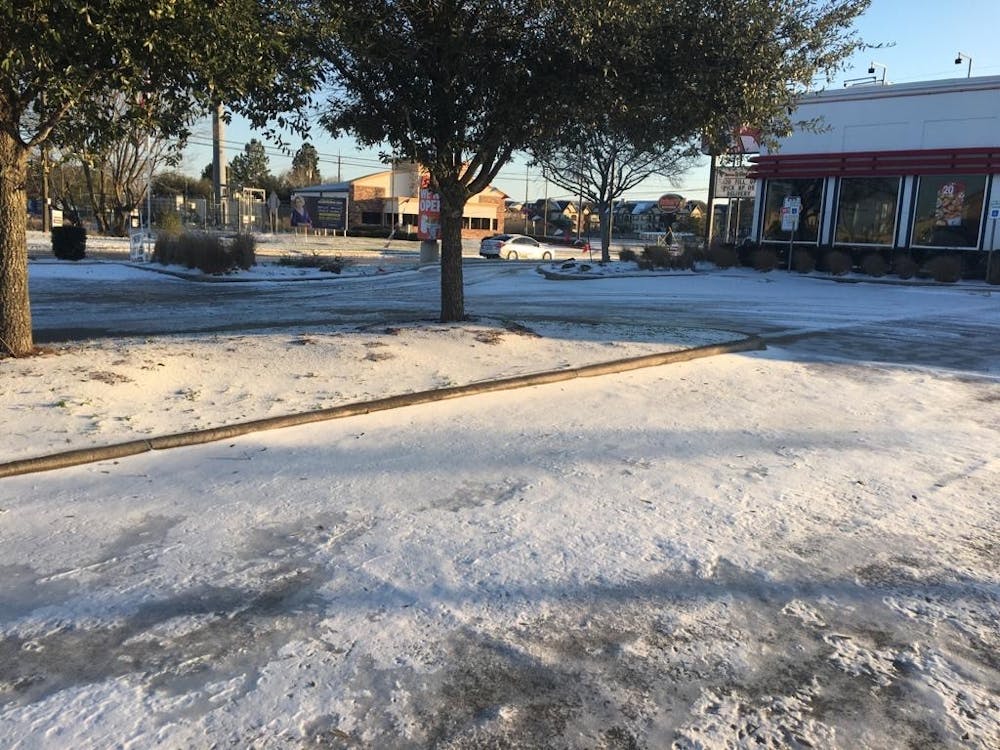A few weeks ago, when much of the Central United States experienced record-low temperatures, Texas became the center of attention when half-a-million residents lost power. If this was not a big enough wake-up call, 30 deaths have since been recorded, including those caused by fire or carbon monoxide poisoning as residents struggled to keep warm in their homes.
All eyes turned to Texas Gov. Greg Abbott (R) and his poor handling of the state’s weather crisis. Abbott insisted that this unexpected weather crisis demonstrated the harm that the Green New Deal would do to America. He claimed the crisis showed the necessity of fossil fuels and argued the Green New Deal would have “deadly repercussions.” Though this attack made for a good attempt to steer Americans away from the Green New Deal, it is false. The power grids in Texas failed due to the frigid temperatures that froze gas production, the fossil fuel that powers the state.
With the Texan climate crisis still fresh in our minds, this incident should be another important wake-up call for Princeton to divest from companies who are the primary drivers of this climate crisis.
Blaming the weather blackouts on renewable energy is a mistake made by fear mongering, climate-change-denying politicians. In reality, Texas was too reliant on gas for its power, which means renewable energy is the last to blame for the power blackout. Looking at the facts behind the lies from Texan lawmakers, it is clear that Texas’s heavy reliance on fossil fuels is the reason why it suffered so much from the unexpected cold weather.
Even Sen. Ted Cruz ’92 (R-Texas), one of the most privileged people in the state, could not handle the power failings and decided to seek refuge elsewhere. His 24-hour Cancún fiasco was disrespectful to the thousands of Texans who were without power due to a climate crisis. Texas’s residents should not have had to rely on fundraising from other politicians while Texas’s own were fleeing the horrific conditions.
Reading the testimonies from residents is chilling (literally) and demonstrates the strength and the willpower the people of Texas had as they endured the storm’s effects. But it should not have to come down to the determination of the residents to battle a snowstorm. Rather, there should be laws and steps taken to ensure that a storm this devastating does not happen again.
One of these steps is reducing the state’s and country’s dependence on fossil fuels. This incident in Texas should serve as a wake-up call to many big oil corporations because of their inefficiency in a crisis like this one. Not only are fossil fuels bad for our environment, but in times of need, they could not provide help.
This should also serve as a wake up call for Princeton, one of the most influential universities in the world. Profiting from fossil fuels and investing in their “benefits” cannot be the norm for a university acting in the “service of the nation’s humanity.” After seeing the fallout from fossil fuels in Texas, it should be clear that the benefits do not outweigh the costs, especially given the dishonesty of those who defend fossil fuels. It is one thing to benefit from climate change. It is another to blame the failings on something unrelated to the problem.

Princeton should look at the incident in Texas, as well as testaments from students who call Texas home, and realize that the climate crisis is real and evolving — it will not stop unless we do. I recognize that divesting will not happen overnight, but in the meantime, the University must be a positive proponent of renewable energy. With its influence, the University could sway people away from the beliefs of Abbott and Cruz and towards science.
Maisie McPherson is a sophomore from Dana Point, Calif. She can be reached at maisiem@princeton.edu.









